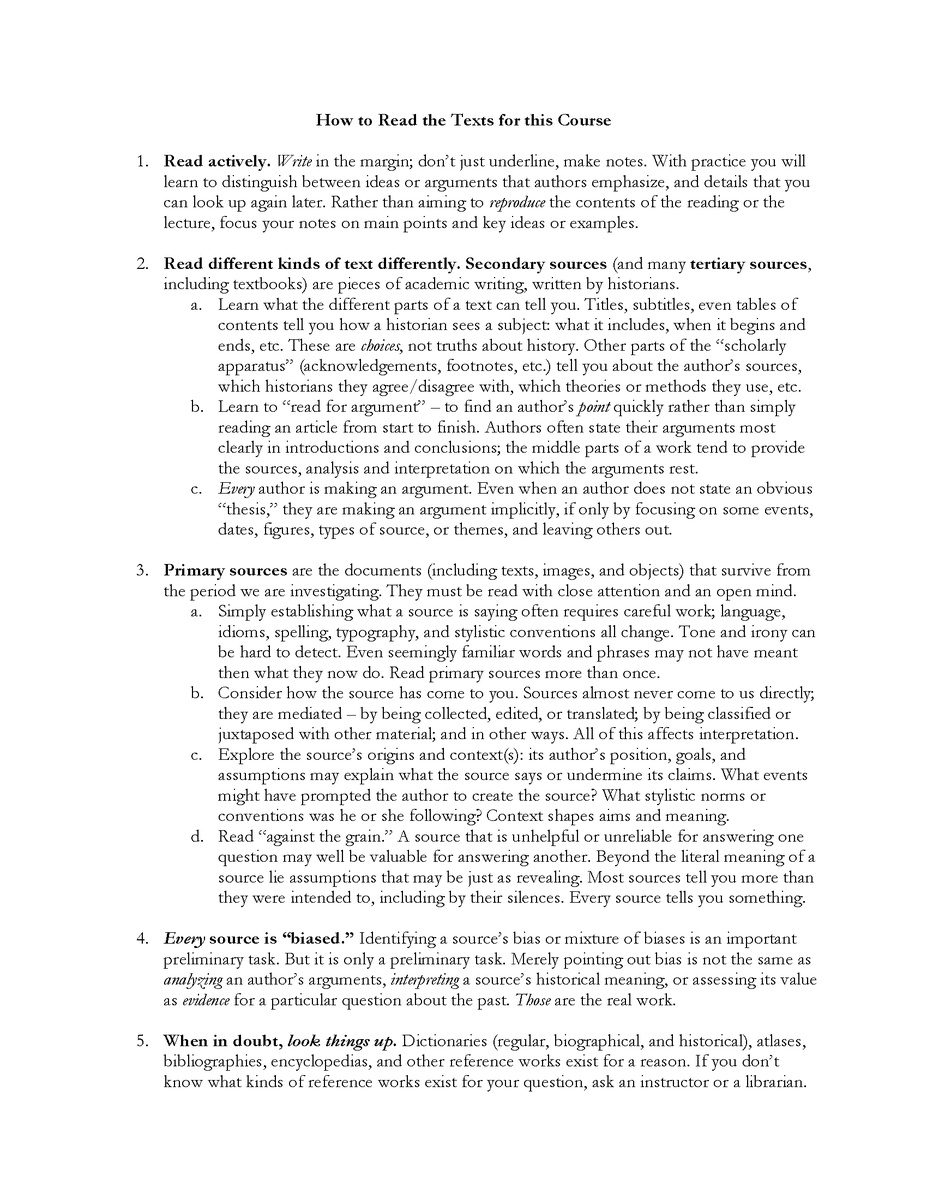Denying history: a thread
(Inspired by but not just about the reaction to 1619. Really just some stray thoughts and a question on conservative reactions to stuff that is not news to historians becoming news in mass media.)
(Inspired by but not just about the reaction to 1619. Really just some stray thoughts and a question on conservative reactions to stuff that is not news to historians becoming news in mass media.)
1. The centrality of slavery to American history is not news. Ties between slavery and capitalism are not news. The idea that the oppressed forced the Founders' promises to mean something is pitched in college courses. These are important, but (arguably) not radical ideas.
2. Yet when these well substantiated and familiar claims and ideas appear in the NYT Magazine they are treated by many -- especially conservatives -- not only as radical, but as wildly revisionist and dangerous, even destructive of the United States.
3. This is not the first time this has happened. Remember the shitstorm over the idea that the Roman Empire wasn't, in fact, a purely "white" or "European" phenomenon? Or -- only slightly less overwrought -- contention over critical approaches to science or the Enlightenment?
None of these histories were fundamentally *new* when they provoked this outcry. But look at conservative popular history of late. One would think the history of the British Empire had been taken over by a team of Kipling's angriest amanuenses. We've gone backwards.
4. This reaction is not just about ignorance. Yes, that certainly plays a role. But in each case, expensively educated people are also *choosing* to act as if well known facts are radical or nihilistic assaults on decency, or civilization, or "reality" itself.
5. As others have observed, there are some clear political purposes that this feigned ignorance serves. Among other things, it helps sustain a conservative fantasy about the US (or Britain, etc) and about the non-existence or irrelevance of racism and other forms of domination.
6. But I'm more curious, at the moment, about how to address this -- or rather how to forestall it when addressing historical arguments to the public. In particular I wonder if some standard tools of historical rhetoric might, in present conditions, do more harm than good.
(NB: This is NOT a subtweet or a criticism of anyone involved in any of the cases I've mentioned. It's an attempt to think about something that's been on my mind w/respect to public-facing work as well as to teaching. I'm not qualified to pick apart anyone else's solutions.)
7. One of the basic moves in addressing a non-expert audience is to meet them where they are: to start from their current views on a subject (or what you think these might probably be) and move gradually from there towards the account or explanation or argument you want to give.
8. One way to do this is to chart the path from their understanding to yours as a series of discoveries, even revelations. You might naturally think X happened this way -- but when we look at document Y, or consider context Z, we realize that it had to have been this other way.
9. There's a lot to be said for this as a way of taking an audience into the subject. But it tends to lay exaggerated emphasis on discovery and thereby, perhaps?, on the novelty of the "new" (in fact academically well established) account/explanation/argument.
(And I don't think I'm being contentious when I say that historians on here often grumble, sometimes justifiably, that journalists or popular authors present established research as novel, sometimes effacing the work of academics in the process -- but that's another issue.)
10. Anyway, thinking about some of these topics, I wonder if this rhetorical strategy doesn't risk playing into the hands of critics who pretend that familiar academic research is indeed radically novel -- and destructive. "Oh, you have a 'discovery' to offer? No sale."
11. The newer it looks, the more "revisionist" -- out of keeping with "real" scholarship, untested, speculative, politicized, you name it. So that what is in fact widely accepted academic research can be painted as a political whim of the moment. A project to undermine society.
12. But what's the alternative? Discovery has a powerful appeal. The authority of expertise and the weight of credentials, by contrast, may still carry some weight on campus, but they have declined massively in public estimation. This is especially true of humanities fields.
13. There appear to be few ways of publicly presenting an expert consensus on any remotely contentious issue that cannot (and will not) be attacked as interested, partisan, or ideological. Novelty is revisionism. Consensus is ideology. Expertise is elitist.
14. The strategy of some academics-turned-public intellectuals looks simple: ride the anti-intellectual wave. Confirm stereotypes about the academy and capitalize on your value as expert witness. But this is a strategy with a shelf life, and a poor vehicle for critical history.
15. So I guess my question boils down to this: how do you do public intellectual work *effectively* in an anti-intellectual climate -- without feeding, one way or another, that same anti-intellectualism?
• • •
Missing some Tweet in this thread? You can try to
force a refresh





